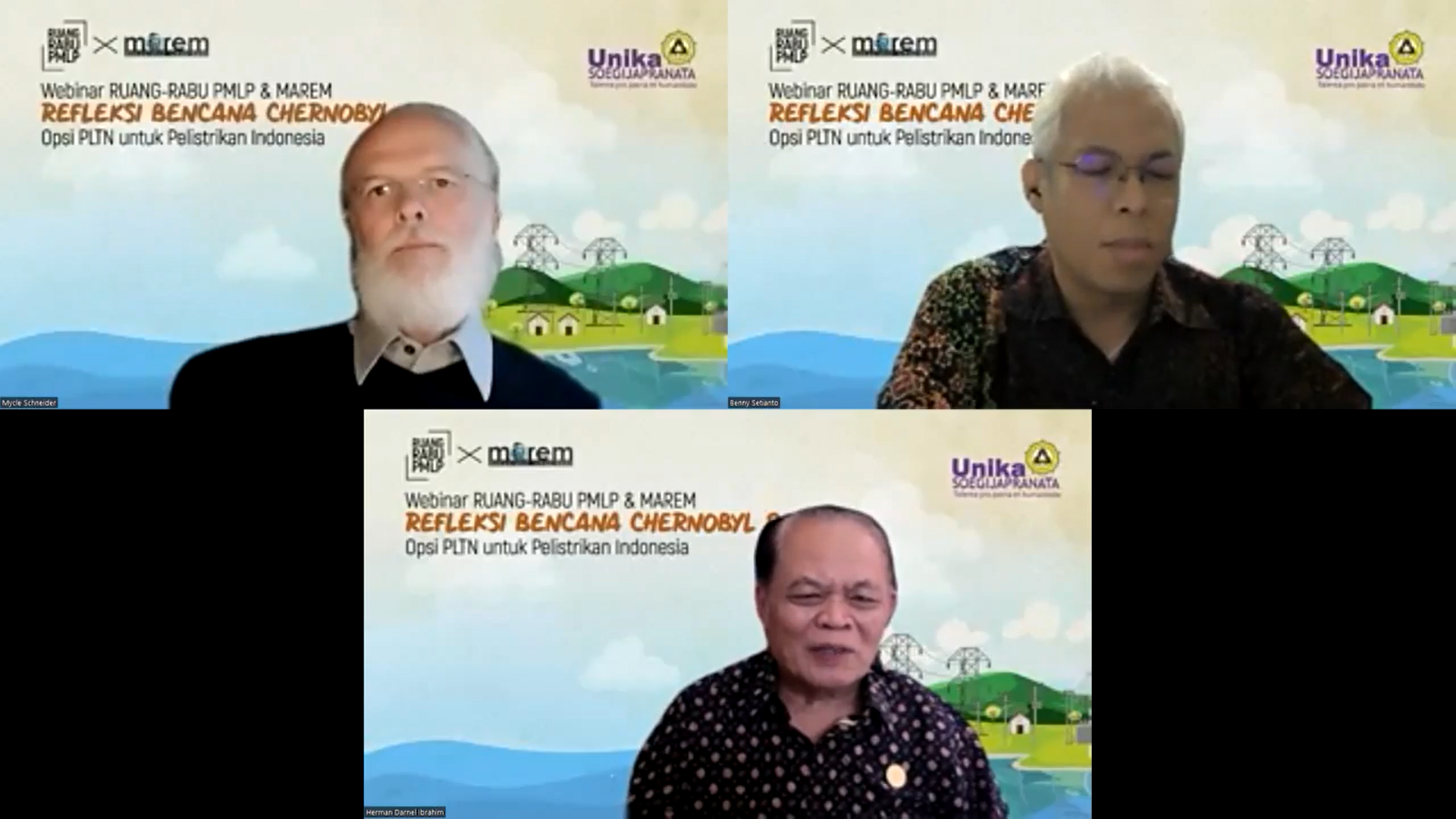The race to address climate change is getting tighter and more challenging. Each country is demanded to revisit its energy policy on time basis and align it with the Paris Agreement i.e to limit global temperature to no more than 2 degrees Celsius in 2050. The energy sector, as one of the most polluting sectors, is under the spotlight to reduce its greenhouse gas emissions, one of which is by choosing the most suitable less polluting power plant to supply energy needs.
The nuclear power plant is in a debatable position related to its ability to provide clean energy. For years, countries like France, Germany, and Japan have relied on nuclear power to fulfill their energy demand. However, there are haunting challenges such as the long construction period, relatively high cost, and the most alarming is the safety issue of the generator. The world notes at least two major nuclear accidents i.e Chernobyl in 1986 and Fukushima in 2011. Even the Chernobyl accident in 1986 still lingers in our mind as its impact is still happening today.
Commemorating the Chernobyl accident, on April 26th 2022, Unika Soegijapranata and Masyarakat Rekso Bumi (Marem) hosted a webinar, titled “Reflection on Chernobyl Accident and Nuclear Option for Indonesia Power Sector”, reflecting on the accident three decades ago and its correlation on Indonesia’s discourse to have nuclear power plant to provide reliable energy supply and to seize the net-zero emission target by 2060.
Herman Darnel Ibrahim, a member of Indonesia’s National Energy Council, stated that Indonesia is still able to fulfill the net zero emissions target without having nuclear power plants.
“By maximizing all kinds (variable) of renewable energy in Indonesia, especially solar and wind whose cost is continuously declining, we may not need nuclear to be net-zero,” Herman said.
Herman continued to explain that the global capacity of nuclear power keeps declining. New nuclear power plants coming online are fewer than those decommissioning. Besides that, there is also a concern about construction delays.
“There are generally delays on construction of nuclear power plants up to 3 years, even more, this is, of course, adding up the construction cost and LCOE.”
The lengthy construction period became the concern of Mycle Schneider, an international nuclear consultant, who emphasized the time urgency in deciding the energy policy.
“Please keep in mind that the state we are in now is a climate emergency, which means it includes time pressure. To address this of course we need fast and relatively cheap solutions,” Mycle said.
Compared to other available options such as renewables or energy efficiency, nuclear power plant construction is considered the slowest option, which makes it irrelevant to address the provision of clean energy to align with the net-zero target.
Mycle added that even the nuclear industry cannot really forecast the future of the nuclear power plants. One in eight nuclear reactors that finished the construction never made it to the grid. 30 of 55 nuclear reactors currently under construction are behind schedule. In general, there is an increasing gap between nuclear perception and (nuclear) industrial reality.
“In the coming years, decision making for energy policy should not be based on economics only, but should be based on feasibility and industrial reality,” Mycle concluded in his presentation.

